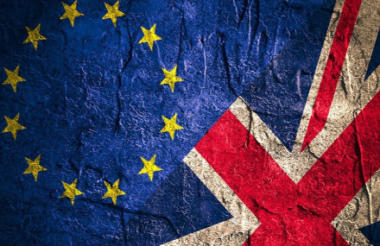Kirsty Weakley takes a closer look at the arguments around what type of Brexit is best for the sector.
This week the question on everyone lips seems to have been ‘how dirty do you want your Brexit?’ Ok, mainly just my lips as I tried to gauge reaction to a report from the Charity Finance Group about the potential benefits of a ‘clean’ Brexit for the charity sector.
CFG’s conclusion is that a ‘clean’ Brexit, whereby the UK leaves the single market and customs union, is less of a risk than remaining within them and being unable to influence the rules.
According to CFG, the UK would be free to reform VAT and state aid rules, as well as any other EU red tape it didn’t like, which could reduce the tax burden on charities.
The report says that remaining in the single market and the customs union risks the “worst of both worlds”, as the UK would have to follow the EU's tax, state aid and procurement policies without being able to influence them.
Chilly reaction
The report has received a rather chilly response from the rest of the sector.
In a flurry of tweets, Sir Stephen Bubb, chief executive of the think tank Charity Futures, called on CFG to withdraw it.
"@CivilSocietyUK: ‘Clean’ Brexit poses 'least risk' to charities, says @CFGtweets report
— Sir Stephen Bubb (@BubbCeo) August 1, 2017
WHAT NONSENSE. Absurd report. CFG lost it.
"@CivilSocietyUK: .@CFGtweets says 'clean' Brexit poses less risk than other options and has a six-point plan for government.
— Sir Stephen Bubb (@BubbCeo) August 1, 2017
BIN THIS!
Sad to see CFG peddling Brexit nonsense. Brexit not good for charity and a hard Brexit even worse. Ditch this silly report.
— Sir Stephen Bubb (@BubbCeo) August 1, 2017
Meanwhile, NCVO’s Brexit expert Brendan Costelloe published a comprehensive blog post arguing that the charity sector shouldn’t be looked at in isolation from the rest of the UK economy.
Costelloe says: “The wider prosperity of the UK is far more important for charities and their beneficiaries than an additional £1.5bn in VAT rebates, nice as that would be.”
He adds: “The biggest threat to charities would be a diminished economy, and the impact that would have on charities and the people they support. Brexit should be negotiated in the best interests of the general public. Ultimately, this is in the best interests of charities too.”
Elsewhere John Downie, director of public affairs at the Scottish Council for Voluntary Organisations, describes the report as “preposterous and self-serving”, and said CFG was doing the sector a “disservice”.
Research carried out by SCVO suggests that 86 per cent of charities in Scotland think that leaving the EU will damange the economy and increase demand for charities’ services.
Its not just the umbrella bodies that have spoken out against CFG.Today the National Trust’s director, Helen Ghosh, warns that Brexit is already having a damaging impact on the environment and calls on the government to commit to policies that encourage farmers to make wildlife-friendly choices.
She says: “We have already seen examples of short-term decision-making, where farmers – in response to uncertainty about the future and income – have ploughed up pasture which was created with support from EU environmental money. It’s very understandable, but heart-breaking.”
Overall, therefore, CFG clearly don’t speak for the whole sector on this issue, despite how some newspapers may have reported it.
New audiences
But maybe CFG wasn’t hoping to win over the charity sector commentariat. Perhaps it was seeking to reach out to new people.
In a blog post, Andrew O’Brien, CFG’s head of policy and engagement, explained that the finance directors' body decided on the phrase “clean Brexit” because: “Our motivation in writing this report is to reach out to new audiences – specifically those that have not engaged with the sector on Brexit – so that they understand the needs of charities.
“In order to do this effectively, we thought that ‘clean Brexit’ was most likely to get a hearing in those Brexit-supporting audiences where charities have not been able to make themselves heard yet."
The very fact that CFG titled a blog Why has CFG written a report on potential Brexit deals? suggests that they were expecting some pushback from the sector.
A conspiracy theorist might suggest that they didn’t actually want the rest of the charity sector to find out at all.
The report, dated Friday 28 July, was published on CFG’s website, but there was no mention of it on CFG's Twitter feeds, and the press release was not sent to any of Civil Society News' journalists until Tuesday, after it had already appeared elsewhere.
Coverage of the report appeared in the Sunday Express, and on a pro-Brexit blog over the weekend. I’d be surprised if these are paying more attention to CFG’s website than we are.
The Daily Express and the Spectator also picked it up. So it seems that CFG was successful in its attempt to reach new audiences with its message about the urgent need for VAT reform.
Audience response
But before we congratulate them on a job well done, it’s worth considering the angle the newspapers took and the response from their audiences.
On Sunday the Express headline was "A clean Brexit will SIGNIFICANTLY boost British charities, new research claims". On Monday it was "'We want a CLEAN Brexit!' Charities sector hopes for £1.5bn boost after Britain leaves EU. The Spectator went with "What does the charity sector want from Brexit? A clean break and tax freedom".
CFG’s report, press release and blog do stress that CFG “did not campaign on either side of the Brexit referendum and has no position on whether Brexit is a good or a bad decision for the UK. However it has carefully analysed the opportunities and benefits various aspects of any potential Brexit deal could bring".
Despite this, having read both the report and the news coverage, I’d find it difficult to argue with the headlines chosen.
And it’s also worth noting that people are bad at remembering detail from what they have read in a newspaper – I suspect that readers will just remember that Brexit is a ‘good thing’ for charities.
Risk of opening negative debates
More worryingly the coverage seems to have opened up the opportunity for those that just hate charities to have a rant, and seem to object to CFG’s central point that charities should get more tax relief.
While comments only represent a small minority of readers, they do offer some insight.
Comments on the Spectator article include a complaint about how much a publicity director at a major charity earns, suggestion that charities get too much government funding.
And discussion below the Express article that was shared in a far right Facebook group called for an end to foreign aid.
What can be done to address this? I’m not entirely sure to be honest. Though I doubt NCVO’s response blog (described as “disappointingly measured” by a colleague here) will really cut through to the pro-Brexit press - It was, quite frankly, a bit dull.
Others have been uncharacteristically quiet.
Ultimately it’s for CFG and its trustees to decide if the media exposure and opening of the discussion outweighs the backlash in the sector and negative online commentary about charities.
But whether we like it or not, the CFG has kicked off the debate has been opened and it’s time to get stuck in.
Related articles












